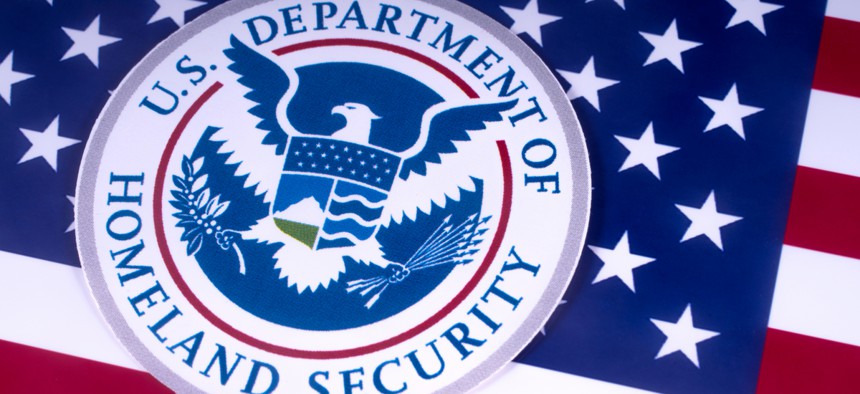Lawmakers Worry DHS’ 2020 Budget ‘Shortchanges the Future’

chrisdorney/Shutterstock
The department's Science and Technology Directorate would be forced to close multiple research facilities to accommodate the 30% budget cut.
Lawmakers worry that by making drastic cuts to the Homeland Security Department’s research and development efforts, the president’s 2020 budget could leave the country less equipped to fight terrorism and defend itself in cyberspace.
The White House’s 2020 budget request would slash funding for the department’s Science and Technology Directorate by $238 million—nearly 30%—from 2019. The proposal specifically includes a 37% drop in the directorate’s research and development budget, which supports a wide range of efforts to advance technologies that impact national security.
If the budget went into effect, the directorate would need to scale back many of its academic and industry partnerships and shutter multiple research facilities to accommodate the cuts, William Bryan, the senior official performing the duties of the undersecretary for science and technology, told lawmakers on Thursday.
Already, the office is preparing to close two of its centers for excellence and postponing plans to open three others next year, Bryan said. He confirmed the directorate is also planning to close the National Urban Security Technology Laboratory, a New York facility dedicated to advancing tech for first responders.
“For too long, we have deferred investments in innovative security technologies ... but these cuts have consequences,” House Homeland Security Committee Chairman Bennie Thompson, D-Miss., said during the subpanel hearing. “From reducing first responder training and technology-testing opportunities ... to shrinking homeland security researcher community ... the president’s [budget] shortchanges the future for political wins today.”
Despite the broad cut to Homeland Security’s research, the 2020 budget proposal boosted research funding for the Cybersecurity and Infrastructure Security Agency, the department’s newly minted cyber defense wing. During the hearing, CISA Director Chris Krebs told lawmakers the additional funds would support cyber innovation at the S&T directorate, as well as his own agency.
“It doesn’t matter where the money ends up—the job is going to get done,” Krebs said. “If I end up with the money, we’ll be working with [Bryan] and his team to transfer and execute the funds and the research program accordingly.”
While he “supports the president’s budget,” Bryan hinted at his desire for Congress to overrule the drastic cuts in their own appropriations package, something they’ve done in previous years. Lawmakers allocated the directorate about $820 million in 2019 after the White House only requested $583 million, and Bryan noted his appreciation for Capitol Hill’s ongoing support.
However, some lawmakers placed the onus on Bryan to advocate for his organization when it programs are put on the chopping block.
“I understand the loyalty, I understand the orders come from the top down, but if you have a very deep real concern [about the budget] … there has to be a remedy,” said Rep. Kathleen Rice, D-N.Y. When the administration proposes these kinds of cuts, “I think more people in positions like yours … [should] stand up and push back.”
NEXT STORY: DHS orders faster patching from federal agencies






